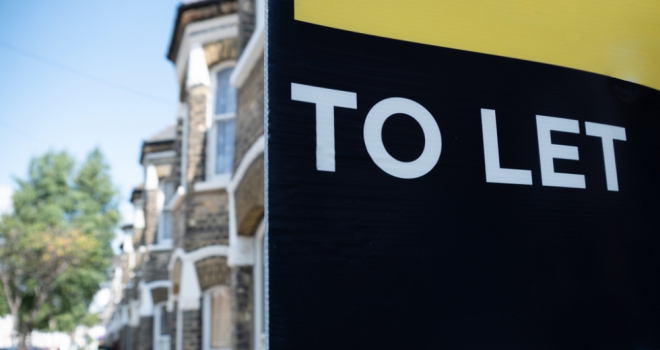
While it will typically cover your monthly mortgage repayments early on, mortgage or not, it's a key source of regular income that offers flexibility and the opportunity to scale your investment.
For landlords who wish to avoid any potential void period at the start of their investment, which in the UK is currently 20 days on average according to Goodlord’s latest rental index, there are two “buy-and-go” options that are worth considering – if you can find them: buying a pre-let property or a property with a tenant in situ.
But what are the differences, how easy are they to find and what do you need to consider to ensure you get a good deal?
Choosing a property with a tenant in situ
According to recent research by Howsy, just 0.8% of properties currently listed for sale across 23 major UK cities come with a tenant in situ, so they aren’t necessarily easy to find but find the right one and it can pay off.
Choosing a property that has previously been let out and has a tenant who is still within contract means it will have an immediate rental performance history, which allows you to better predict its performance – and the return on your investment - in the future. An additional benefit, in most cases, is that your investment will also include all the furnishings, meaning no extras to pay for.
Something to consider while you're performing your due diligence is to; take note of the current rental income, if the tenant has been in place for a considerable amount of time and whether the rents have increased at any point.
Ideally, you want your rents to be at current market rate and if they’re not quite there, you will need to weigh up whether you will be able to increase to market rates in future or, if the tenant is a good tenant, whether you can still make a sufficient return on the current rate for a longer period.
It’s important to remember that a good tenant is the jewel in the crown of a buy-to-let property. As well as being confident of a regular income over the long term, you can also be sure your property is well looked after, meaning you incur no unnecessary expense from excess wear and tear and the value of your property isn’t affected.
Choosing a new, pre-tenanted property
This type of investment means a new-build property where the developer or agent has already marketed and agreed tenancies ahead of the handover of the newly completed development.
As a completely new property won’t come with the benefit of a rental track record, it’s imperative to read up and research the area and the type of property enough to be able to form a decision on how the property is likely to perform.
However, where this can be beneficial over the tenant-in-situ option, as well as an untenanted option, is you have more control over the rental income you earn straight away. As a new property, the agents responsible for agreeing on pre-rentals will have marketed the property at the full market rate, so you should be able to make your ideal returns from the word go.
There are many benefits to purchasing a property with a tenant already in place, but as with any property investment, it’s all about doing your due diligence – asking the right questions about the tenant, their history at the property or their track record if it’s a new tenancy and the historical and predicted performance of yields for that type of property within that area.
For investors who want to avoid any possibility of an initial void period, or investors who wish to guarantee a good tenant, buying with a tenant in place can prove to be a very viable solution.





